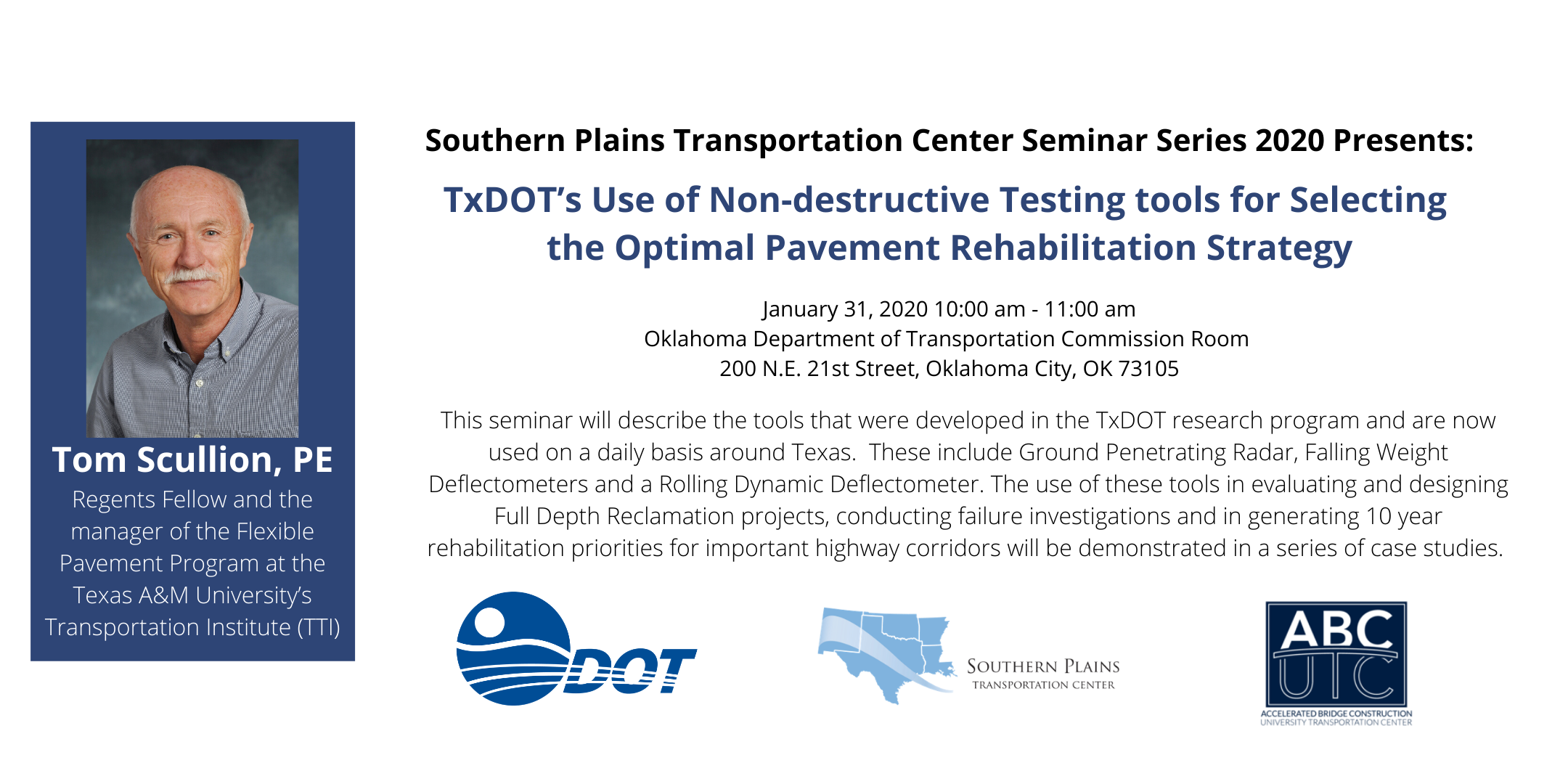 Sell tickets and manage registrations
Sell tickets and manage registrations
 View my tickets and registrations
View my tickets and registrations
 Sell more tickets through digital marketing
Sell more tickets through digital marketing
 Add an event calendar to your website
Add an event calendar to your website
 Find events by location and categories
Find events by location and categories
TxDOT’s Use of Non-destructive Testing tools for Selecting the Optimal Pavement Rehabilitation Strategy

Many miles of the Texas road network have reached or have exceeded their design lives. Selecting the cost-effective rehabilitation and/or maintenance alternative continues to be a challenge. For major designs TxDOT relies heavily on the use of advanced Non-Destructive Testing tools to assist in identifying the root cause of pavement deterioration and in selecting the optimal repair strategy.
This seminar will describe the tools that were developed in the TxDOT research program and are now used on a daily basis around Texas. These include Ground Penetrating Radar, Falling Weight Deflectometers and a Rolling Dynamic Deflectometer. The use of these tools in evaluating and designing Full Depth Reclamation projects, conducting failure investigations and in generating 10 year rehabilitation priorities for important highway corridors will be demonstrated in a series of case studies.
Mr. Tom Scullion is a Regents Fellow and the manager of the Flexible Pavement Program at the Texas A&M University’s Transportation Institute (TTI) and is a registered professional engineer in the state of Texas. He has been involved with pavement research for over 40 years and his current interests are in the areas of pavement design, high performance thin overlays, non-destructive testing, full depth reclamation and soil stabilization. His list of sponsors includes state agencies, municipalities, counties, private consultants, and contractors.
Mr. Scullion is an expert in using nondestructive testing to identify defects in engineering structures. He routinely uses both Falling Weight Deflectometers (FWD) to measure structural strength and Ground Penetrating Radar (GPR) to identify and locate subsurface defects. Mr. Scullion supervised the development of GPR interpretation software and provides training for the Texas Department of Transportation (TxDOT) on where and how to use this technology. He has developed and regularly teaches training programs for TxDOT on pavement design, FWD analysis, Rubblization, Full Depth Reclamation, thin overlay design and construction.
He routinely conducts forensic evaluations of pavements showing premature deterioration and is currently active in developing 10-year rehabilitation plans for major Interstate corridors in Texas. He played a lead role in the development and implementation of the MODULUS 7 backcalculation program, which is widely used around the world for processing FWD data. He also was the lead developer of TxDOT’s Flexible Pavement Design program (FPS 21), which is the recommended design system for all flexible pavements in Texas.

